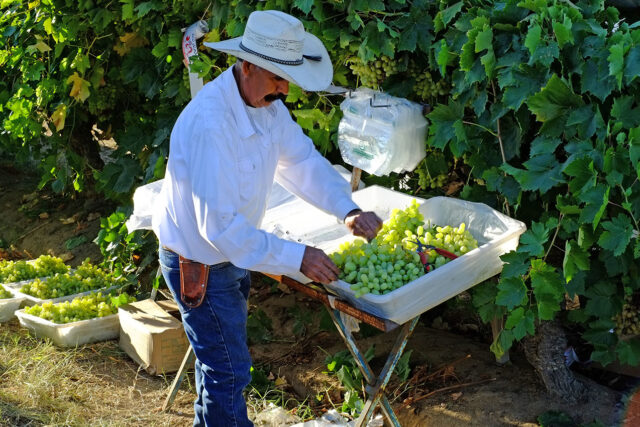Contaminated groundwater is an ongoing problem in some of the state’s poorest rural communities, particularly in the San Joaquin Valley. One big threat is nitrate, caused mainly by many decades of crop fertilization with chemical fertilizers and dairy manure. For dairy farms, solutions are especially difficult and expensive. We talked to Anja Raudabaugh of Western United Dairymen about what can be done to address these challenges.

PPIC: What is the relationship between the San Joaquin Valley dairy industry and water quality?
Anja Raudabaugh: The entire valley faces significant water quality problems. Arsenic, which occurs naturally, is the number one contaminate. The second most widespread problem is nitrate. We’ve had these issues for many decades. Animal agriculture, aging wells, certain soil types, and heavy reliance on groundwater all add to the problem.
We recognize that the dairy industry is part of the problem—and we also want to be part of the solution. The public perception is that our manure lagoons are particularly problematic, but most lagoons in the valley are heavily lined and can’t affect groundwater. It’s also important to note that the industry’s manure management requires a state permit—we’re regulated as to how much nitrogen we can apply and how we store it. California’s standards for operating a dairy are the strongest in the nation.
With the help of studies by UC Davis, monitoring from the Regional Water Board, and industry-designated monitoring wells, we’ve found that 94% of the nitrate pollution surrounding dairies is coming from applying manure to land. Manure is collected in lagoons, diluted with water, and then applied to row crops that feed our cows.
PPIC: What are some promising approaches to help address these water quality problems?
AR: This is a big, statewide challenge, and all parties need to be at the table to work on comprehensive solutions. The dairy industry has been working on solutions to nitrate for about a decade. For the short term we need to use less manure on lands where nitrate leaching is a problem. And we must ensure communities have access to clean drinking water.
New technologies can help. For example, a new filtration system that can remove a lot of nitrate out of lagoons has been installed on 100 valley dairies so far. We’re also working with Sustainable Conservation on some promising biological solutions―including a pilot project to use high quantities of earthworms to decompose nitrate coming from manure. The worms digest up to half the nitrogen and leave a very pure fertilizer. But it’s an expensive solution―a million earthworms is costly. It’s been installed on four dairies, but they haven’t yet been able to scale it. We’re also trying to build markets and incentives to move organic manure off dairies to other farms where it can be used.
Agriculture alone can’t afford to bear the full costs of permanent long-term water quality solutions to the range of contaminants in the state’s water. There remains an overarching need for public funding to address these problems, such as covering costs for operation and maintenance of small water systems in disadvantaged communities. A 2012 report discussed two ways to remediate nitrate in groundwater: pump and treat the water, then reinject it into the ground; or treat it in place. Both approaches are very costly.
We believe the proposed “safe and affordable drinking water fund” is the most elegant and fairest solution proposed so far. This fund spreads the costs out across the whole state. Agriculture would pay a significant portion but not all of it. This type of fund is the blueprint for how we get there—and would ensure the dairy industry is able to participate and still remain a viable financing partner into the future.
PPIC: What gives you hope for the dairy industry?
AR: The state’s dairies are producing some of the most sought-after agricultural products in an environmentally sustainable fashion.
Our dairy families want to produce healthy products, and want to work and live in healthy communities. This is our drinking water, too―99% of the valley’s dairies are family owned, and these folks are raising their families in these communities. Clean drinking water is a moral issue for this organization. I’m really proud of the dairy men and women who’ve stepped up to work on this problem. I’m optimistic because our industry is proactively helping to deliver solutions to these problems.




